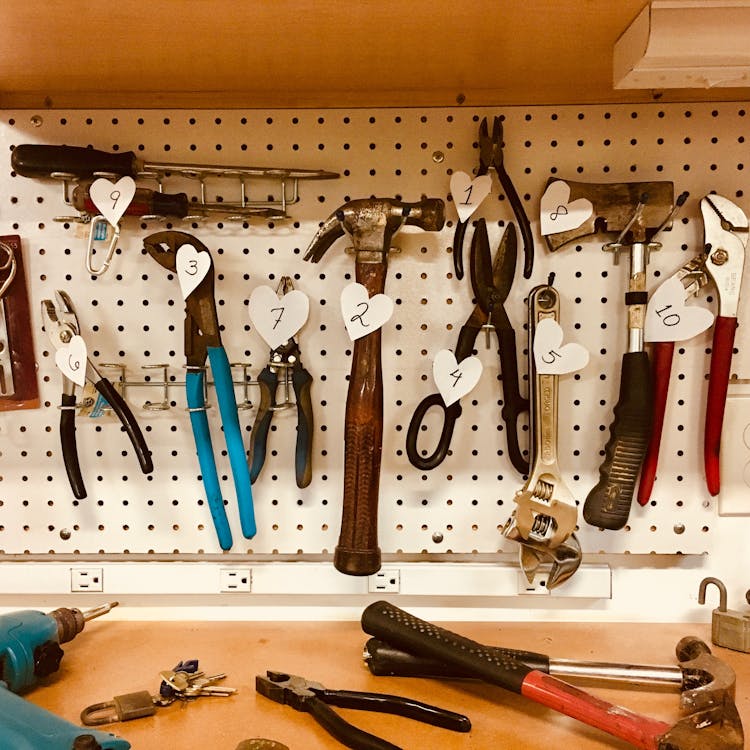Just like our organs, our anger is part of us. When we are angry, we have to go back to ourselves and take good care of our anger. We cannot say, 'Go away, anger, I don't want you.' When you have a stomachache, you don't say, 'I don't want you, stomach, go away.' No, you take care of it. In the same way, we have to embrace and take good care of our anger. - Thich Naht Hanh
Anger is a reflexive, protective response which emerges, at least initially, from a primitive part of our being - "primitive" only in the sense that anger has been with us for as long as we have been embodied. It can flare up in an instant at the sight or sound of a threat; then, if inner and outer conditions allow, it can dissipate just as quickly. Anger that has not been distorted by other wounds and confusions is like a guard dog who can bark, snarl and growl very fiercely in the presence of perceived danger, then flop down on the floor and roll on its back to let its belly be petted a few moments later.
Because we live as separate beings in a world of other beings who also perceive themselves as separate, anger is a necessary response to circumstances in which we are encroached-upon or deprived. Of course, in a state of unity consciousness, anger would not exist; in fact, it could not even be conceived of. But in our human lives anger is natural and appropriate, when we can allow it to serve its purpose - the laying-down of a boundary - without emotional complication. It serves a function as basic as the functions of hunger, thirst and sleepiness, all of which exist to ensure that we attend to important needs.
The problem is that in most human beings, anger is no longer an elemental, uncomplicated state. Instead, it has become enormously entangled with other emotions, patterns and imprints: for instance, the pattern of turning against and negating ourselves, which then requires a compensatory lashing-out at others; the pattern of suppressing ourselves and our natural responses, which produces unsustainable states of pressure in the being; the pattern of allowing others to mistreat us, which creates free-floating anger that can poison us and others with its invisible time-release action - and so on.
Most of us, therefore, have some sort of "anger problem." In some of us, that manifests as what appears to be too much anger. We may operate on high alert, responding with instant fury to even the smallest threat, and have great difficulty relaxing our inner being into conditions of ease. This pattern can lead to other patterns; for instance, we might become angry at ourselves for feeling and expressing so much anger toward others. This would then add another step to the dance: 1) Perceived threat, 2) Instant fury at the perceived source of the threat, 3) Immediate fury at the self for experiencing instant fury. Obviously, step three does nothing to facilitate the state of calm openness in which we are most able to contact universal sources of love and compassion; in fact, it locks us even more firmly into the physiological and emotional hyperarousal of anger. This is a very common pattern among survivors of physical trauma, and is often classified in mainstream psychology as Post-Traumatic Stress Disorder (PTSD.)
On the other hand, some of us manifest what appears to be too little anger, failing to react even when others blatantly invade or violate us. Some people even imagine that this is a spiritually advanced way to be. While it is probably true that an enlightened being would be non-reactive in this way, it's safe to say that few if any readers of this article have achieved that degree of enlightenment. Instead, what is usually at work in this response is a different pattern of dance steps: 1) Perceived threat, 2) Instant fury at the perceived source of the threat, 3) Immediate suppression of fury. This anger dance generally leads to states of resignation, depression and internal collapse - and sometimes also to physical illness. While the person who is frequently angry lives in a state of chronic energetic hyperarousal, those who are rarely or never angry live in similar discomfort at the opposite end of the energetic spectrum: chronic hypoarousal, usually experienced as emotional or physical weakness or malaise. This, too, is a very common pattern among trauma survivors.
Of course, there are infinite variations on these patterns and intricate complications that can ensue - for instance, a pattern of using drugs or alcohol to medicate either the hyper- or hypoaroused states; a pattern of "passive-aggressiveness," in which the anger we have attempted to suppress leaks out indirectly; a pattern of perseveration, in which we find ourselves drawn to endlessly revisit or talk about the situations that have produced the anger; a pattern of withdrawal, in which the hyperarousal of anger so frightens or disturbs us that we isolate ourselves in an attempt to avoid it; a pattern of displacement, in which our fear of our own anger leads us to develop phobias, allergies, physical symptoms or other diversionary responses in its place - and many others.
If you ask your spirit guides for help in dispassionately exploring your own response to perceived threats or actual violations, you will easily be able to map out your own most common dance or dances of anger. In and of itself, this mapping can be very helpful in diffusing the emotional charge most of us feel around the topic of anger. When we examine the vast number of ways human beings have twisted and tangled ourselves and each other into painful, angry knots, we can start to take our own relationship to anger less personally.
Beyond that, the work of harmoniously realigning our relationship to anger is the same work described throughout this artical. Assuming full responsibility for our own anger, no matter what others may have done or failed to do, is the stance that enables us to begin this process. Soon we will become able to see that beneath each step in our own personal anger dances, some healing, clearing or energetic correction is needed - perhaps one or many soul retrievals, releasing of imprints, straightening-out of our non-physical posture, or the removal of energetic interference. Thich Naht Hanh advises, "When you are angry, and you suffer, please go back and inspect very deeply the content, the nature of your perceptions. If you are capable of removing the wrong perception, peace and happiness will be restored in you, and you will be able to love the other person again."
The shamanic journey is an extremely powerful tool for understanding and healing your anger at its source. The following notes describe a sequence of four shamanic journeys I took a number of years ago, which helped me dismantle the anger I felt in a specific circumstance, and begin the very necessary healing process which lay beneath it. More often I do only one or two journeys at a time, but as you'll see, in this case, all four were necessary. The entire process of taking the four journeys and writing them down took less than an hour in ordinary-reality time.
Journey #1: I felt angry at a human mentor who I believed was "using" me. My journey question was, What do I need to understand or heal in relation to that anger?
I found myself having to squeeze through a very thin tunnel, and also being strained through a sieve, on my way to the upper world. When I finally got there, I asked my guide what to do with the anger. He said, What anger? I explained. He said it made no more sense to be angry at my mentor than at myself, and made no more sense to be angry at myself than to have any other reaction. Yes, people will "take advantage" if you walk around in the world with the kind of weak spot I've had, but it's like water rushing through a wall that is weak, or has a hole in it. Does it make sense to be angry at the water? Does it make sense to be angry at the wall? Or does it just make sense to see what has occurred, and fix the hole and/or make the wall stronger?
Although I could see the truth of what my guide was saying, I was kind of pissed-off by not being able to hold anyone else responsible, even a little bit. I felt resistance and kept getting distracted. Finally, by following the distraction, I could see that the "wall" is really more like vapor in me, no clear boundary at all. I got that it's because I've given so much of myself away to practically everyone. So I focused on getting more of myself back from all the different sources - family members, ex-lovers, friends. I could feel myself getting stronger, yet I still kept feeling resistance to the process.
Journey #2 - What's all this resistance about, and what needs to happen with it?
I found myself in a cave in the lower world, surrounded by a circle of guides who were praying for me. I felt uncomfortable and thought, Why are they praying for me? Then I realized that my difficulty accepting their attention was part of the problem (i.e. difficulty in receiving,) so I relaxed and let them pray for me. After that, it seemed I needed to have layers of skin peeled off of me by a giant carrot-scraper-type apparatus. As they got peeled off, blue and lavender light got sent in. Then I was taken to a room where I could convalesce. There was a skylight in the room, and again, the bluish and lavender light was streaming in. In the physical world, I started drumming harder, and directly over my body. It felt like something related to the resistance needed to leave me, so that I could really embrace taking full responsibility for myself.
Journey #3 - Check in with the anger, resistance and self-responsibility now.
I went back to the room where part of me was convalescing. She now seemed like a girl of about twelve. She was kind of feverish and writhing around in the bed, not doing too well. I sat down on the side of the bed and just kept her company. At one point I called my guide in to ask if there was anything else that needed to be happening, but I got the message that there wasn't. So I just sat there with her. Images came of different ways she/I had betrayed her/myself - all the times I had sex I didn't want to have, or gave or lent people things or money which I never got back. I felt no judgment toward her or myself, just held these images. Eventually she calmed down; I lay down beside her in the bed and we just looked up at the skylight together. Then we merged - she came into my body - and then it was just me lying there and looking up at the skylight. Then I brought in images of the ways I've been with my mentor - how hard I was trying to cater to her, how eager and in a way desperate I was. I was able to look at that without judgment, as well. That way of being was so deeply imprinted in me, and with her I justified it to myself by saying it was because she was such a force of good in the world, etc., so didn't it make sense to just turn myself over to her needs and wishes and pleasures? But of course it didn't - I could see that now, and stop blaming her for the compulsive way I'd been with her, and also stop blaming her for accepting it. Sure, she was the water that flowed in through the hole in my wall (or the vapors where a wall should have been), and if she were completely healed, she would not have done that. But she isn't, and I'm not, and there's no point in blaming either one of us - the point is just to make a wall, not a fortress, but a sea-wall, where there needs to be one.
Journey #4 - Check in on the status of all of these issues now - wholeness, boundaries, giving, and my relationship to my mentor.
I went to the convalescent room to check on myself there, but my guide came and playfully dragged me out to the edge of the cliff, where we took turns diving and jumping off the cliff, landing on the bottom, then going back up to dive or jump again. Then at some point we were jumping into a deep pool of water instead, and the message seemed to be that all the different kinds of shattering - for instance, the shattering of the water, when we hit it - were necessary. Then I was swimming in the water like an eel and realizing that "boundaries" could operate just the way my skin does in the water. It's not that the water is bad or that I need to "protect myself" from it, it's just that it's not appropriate for it to come inside me, because I have my own chemical makeup which is different from the chemical composition of the water. The boundary of the skin is easy and natural. I can learn to emulate that with my emotional and energetic boundaries.
This series of journeys illustrates many of the healing and teaching methods commonly found in shamanic journeys. In Journey #1, my guide used a metaphor - the image of a wall with a hole in it - to help me see my situation more impersonally, release anger at my mentor and at myself, and move beyond the impulse to blame either one of us. Yet although I was able to begin that process in this journey, my resistance showed that more energetic work was needed.
In Journey #2, my guides initiated several kinds of healing. The first came about as my guides prayed for me, and as I made the internal shift needed in order to receive the healing energy of their prayers. The second healing, in which I was peeled by the giant carrot scraper, is an example of a shamanic healing technique known as dismemberment. Although dismemberment can sometimes appear brutal - this was a relatively mild dismemberment, but even in this one, layers of skin were removed from me - guides use it as part of a compassionate process of energetic cleansing and reconfiguration. My sense is that the energy I called "resistance" was buried beneath my skin, so the "peeling" was necessary in order for me to release it.
The third form of healing in Journey #2 involved the use of blue and lavender light. Each color carries its own healing frequency, and evidently these were the frequencies I needed at this time. My sense is that this light was used both to purify my energy, and then to help me recover from the dismemberment. I believe that my urge to drum over my body in physical reality also came as a directive from my guides; the vibrations of the drum further cleansed me, offering a fourth kind of healing and completing the process of releasing the "resistance" energy.
In Journey #3, it became clear that in addition to the clearing and dismemberment I had experienced in Journey #2, a soul retrieval was taking place. The journey suggests that I experienced some significant soul loss at around age twelve which led to an inability to set or maintain healthy boundaries. Although it was painful to see the ways that that soul loss had led me to betray myself, I was able to maintain compassion both for my younger self and my present-day self, which enabled the lost soul part (the "girl") and I to reunite and become one again. With that part of my soul restored, I was even more able to accept what had occurred with my mentor, and release both her and myself from anger or blame.
Journey #4 suggests that since the necessary healing for this cycle had been completed, it was now time to play! Guides generally have great senses of humor, and journeys often offer teachings in playful forms. In this case, my guide used the experience of jumping and diving into a pool of water to provide me with more understanding about the nature of damage ("shattering,") and the nature of healthy boundaries.
https://ezinearticles.com/?A-Spiritual-Approach-to-Anger:-How-to-Understand,-Appreciate-and-Heal-Your-Rage-At-Its-Source&id=7777620

















